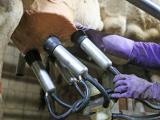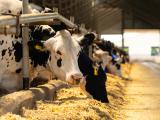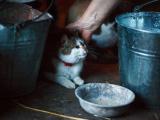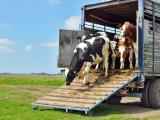Mar 12, 2013
H5N1 hits poultry farms in Cambodia, Bangladesh
Avian flu outbreaks on farms in Cambodia and Bangladesh have led to the culling of more than 4,000 poultry, according to reports today. In the first outbreak, workers culled 2,359 birds after H5N1 avian flu killed 10 birds on a poultry farm in Siem Reap province in northwestern Cambodia, according to a report filed with the World Organization for Animal Health (OIE) today. In addition to the culling to prevent disease spread, the farm has instituted disinfection measures. All nine cases of human H5N1 flu in Cambodia this year have been in more southerly provinces. Eight of those cases proved fatal.
Mar 12 OIE report
In Bangladesh, more than 1,800 chickens were culled and 400 eggs destroyed after an unspecified strain of avian flu was confirmed at a poultry farm in Rajbari district on Mar 10, the country's Daily Star reported today. The owner of a farm in Kalyianpur village informed a district livestock officer after "several" chickens died on his farm, the story said. A lab in Manikganj confirmed avian flu.
Mar 12 Daily Star story
Measles-rubella vaccination drive targeting 49 countries begins in Rwanda
A measles-rubella vaccination campaign being launched today in Rwanda marks the start of an effort to vaccinate more than 700 million children in 49 countries against the two diseases, according to the GAVI Alliance (the Global Alliance for Vaccines and Immunization). The goal is to introduce the dual vaccine in all the countries by 2020, the alliance said in a press release. It said Rwanda, which is already effectively controlling measles, is the first African country to provide measles-rubella vaccine nationwide with GAVI support. Over the next 4 days, Rwandan health workers aim to vaccinate close to 5 million children between the ages of 9 months and 14 years. Five other countries—Bangladesh, Cambodia, Ghana, Senegal, and Vietnam—plan to launch similar drives with GAVI support by the end of this year. Measles and rubella are unrelated diseases but cause some of the same symptoms and are often confused with one another, the alliance noted. In pregnant women, rubella can cause miscarriage and severe birth defects, such as blindness, deafness, and heart problems. Vaccination efforts reduced global measles cases by 71% between 2000 and 2011. But as measles wanes, rubella cases, which in the past might have been mistaken for measles, begin to emerge, pointing up the need for the vaccine. GAVI is providing about $6.8 million to support the Rwandan immunization drive.
Mar 12 GAVI Alliance press release
Fungal infection prompts bagpipe hygiene warning
A fungal lung infection in a high-profile Scottish bagpiper has prompted a warning from the College of Piping that musicians should ensure that their bags are clean, The Scotsman, a newspaper based in Edinburgh, reported. John Shone, a 77-year-old man from Wiltshire, got sick in September and was hospitalized twice before his doctors asked about his hobbies, then had the man's bagpipes tested. The hospital's pathology department found a heavy growth of fungal cultures inside the bag, which allowed the man's doctors to fine-tune his treatment. Shone told The Scotsman that a previous illness may have made him vulnerable to the infection. The report isn't the first to document a fungal lung infection in a bagpiper. In 1978 an Australian medical team sent a letter to The Lancet describing a Cryptococcus neoformans infection in a 60-year-old man who had a persistent cough after treatment for acute myeloblastic leukemia. The organism was cultured from his sputum and from the bag of his pipes. They wrote that the leather bag is treated with a preparation to keep it airtight, which could serve as a good culture medium. The authors noted that it's not clear if the man was infected from the bagpipes or if the bagpipes were secondarily infected.
Mar 10 Scotsman story
Jun 24, 1978, Lancet letter


















